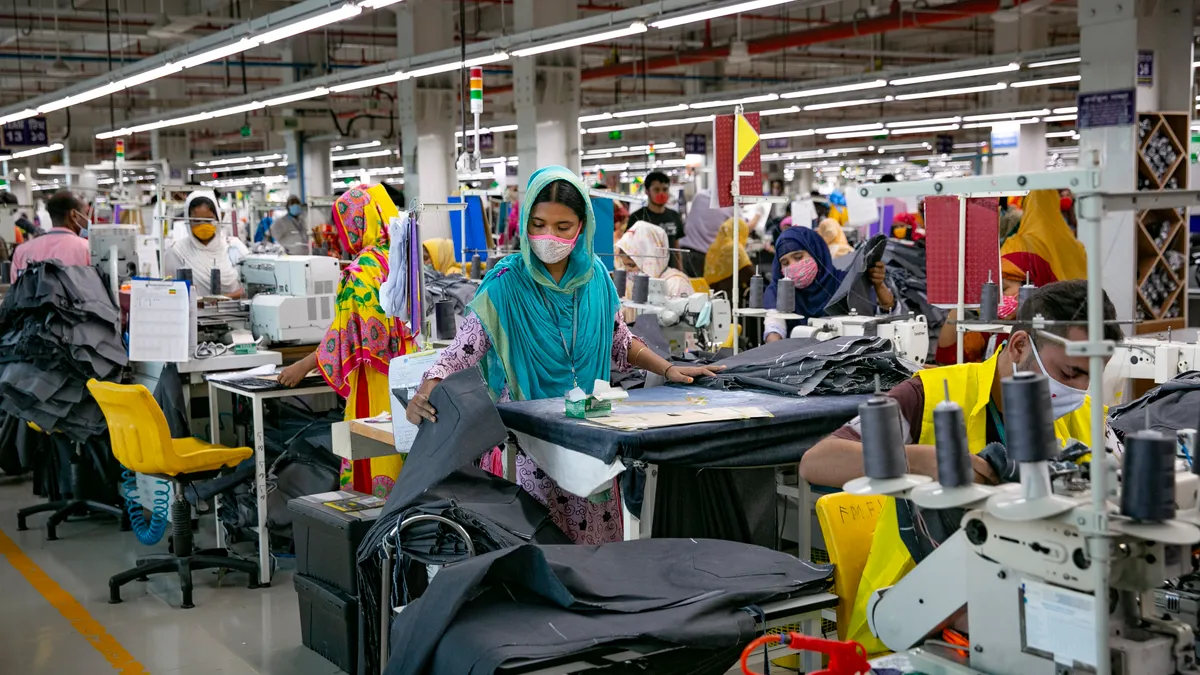What does the next generation of supply chain professionals look like? For those who have been in the industry a long time, the talent moving up the supply chain ladder may look a little different than previous generations.
Fortunately, THOMASNET.com and the Institute for Supply Chain Management partnered to recognize young supply chain leaders in their third annual 30 Under 30 Rising Supply Chain Stars. These young professionals, nominated by their peers, exemplify what it takes to succeed in this rapidly changing industry.
Supply Chain Dive talked with three of this year's awardees to create a profile of a successful supply chain professional from their example, here's what we learned:
Education: A supply-chain focused degree
The three we interviewed all have degrees in supply chain management or in a related field.
Corey Gustafson, a senior buyer at Deluxe Corporation in Minnesota earned a degree in graphic communications management (i.e. printing management), with an emphasis in supply chain management at University of Wisconsin - Stout. While he started out in engineering, he quickly changed to business. He especially enjoyed the challenges and case studies in his procurement class, taught by a knowledgeable professor. The supply chain major was fairly new when Corey, now 27, was in school. If he were to go back to college to do it over again, he'd choose the supply chain management degree.
You can go into multiple industries and apply the skills you learn in
Kiara Conde
Transformation Analyst, Shell Exploration and Production Company
Kiara Conde, a 26 year old transformation analyst at Shell Exploration and Production Company in Houston, also started University of Houston with a different major — accounting. She decided to find a major that would be more interesting to her, and she chose supply chain management after taking an introductory course. Not only was the professor inspirational, but she liked the flexibility the supply chain industry offers. "You can go into multiple industries and apply the skills you learn in supply chain," she told Supply Chain Dive.
Tianhou Zhong, on the other hand, chose the supply chain major at Rutgers University during the first year they offered it. The 25 year old senior analyst of global strategic sourcing at Coach said the major was a good fit for his personality, as a person who likes to constantly improve and streamline things for himself and others.
Certifications: A benchmarking and networking tool
Of the three supply chain talents we interviewed, two of them currently have CPSM certification, although all saw it as a valuable tool for credibility, experience and networking.
Gustafson's goal was to earn his CPSM on the day he qualified to do so, given class and work experience requirements. He wanted to get certified for the additional education (and because his company paid for it), but he found other benefits. The coursework confirmed to him that his employer and department were right on track. "I used it as a benchmark about being cutting edge in terms of sourcing. We’re doing a lot of what we should be doing for a company our size," he said.
In terms of the job market, Gustafson said that mid to larger size companies list preferences for ISM or APICS certification. "A lot of recruiters on LinkedIn are looking for that key word," he said. He’s one of the few in his department of around 30 to have the CPSM certification.
I used [certification] as a benchmark about being cutting edge in terms of sourcing.
Corey Gustafson
Senior Buyer, Deluxe Corporation
An added benefit of the certification classes is that Gustafson started attending his local ISM affiliate chapter meetings, which has been great for networking, education and leadership development. He’s currently a board member as well as sitting on several committees. "The networking piece is important," he said. "There aren't many other avenues for younger people to connect with executives at large companies. People are friendly and open to talking at these events." It's been helpful connecting him to the Twin City area, and providing informal mentors.
Gustafson's company also has a formal lean certification program, open to anyone in the company. He's currently certified in two levels, bronze and silver.
While obtaining the CPSM accreditation was a requirement of Conde's first job, in the rotational program at Shell, she's found it valuable. "It's great because not all of us have a supply chain management degree," she said. "It's great for everyone to get that exposure." The classes were a good refresher for Conde.
Zhong does not currently have any certifications, but is considering his options. He's not seen it as a requirement for his current job or the procurement job market, but he sees the credibility benefits that the education and experience bring to a job search.
Skills: Communication, organization and analysis
Supply chain management is obviously a broad field requiring multiple skills. But these supply chain procurement professionals found several skill sets in common.
Both Conde and Gustafson emphasize the importance of communications in their jobs. Working at a manufacturing company, Gustafson said that he's always on the phone with colleagues from different departments, like finance, accounting and product management. Verbal skills, as well as emailing skills, are important for documentation and sharing information. Gustafson said that another part of communication is asking the subject matter experts a lot of questions, to help him make better decisions.
Most skills I use today are ones they didn’t necessarily teach in
Tianhou Zhong
Senior Analyst, Global Strategic Sourcing, Coach
Another helpful skill in the communication arsenal for procurement and contracting is persuasion, said Conde. "You have to learn how to influence," she said, as a lot of colleagues have diverse opinions. "When people have been here 15 to 20 years, maybe they don't see what a fresh pair of eyes sees. You have to be able to communicate the message correctly for them to understand," she said, versus them seeing an outsider come in and changing what’s been done in the past.
Organizational skills are helpful as well. "No one really tells me what to do or the timeline," Conde says. "I have to be self-motivated to make sure I've completed different tasks, especially in my role."
One last skill on the list is analysis, the ability to analyze vast amounts of information and distil it down to its essence, and then present it, said Zhong.
Mentors: An invaluable resource
Conde is the only one interviewed who had a formal mentor at work, one assigned to her through her rotational program. That said, she still recommends seeking out informal mentorship, finding someone you get along with and someone you'd like to emulate at work. She reached out to someone recently to request mentorship and said the person was flattered and happy to do it.
Unless they count their bosses, mentors for Zhong and Gustafson have been informal. "Everybody I work with, especially those I've worked closely with, have done a good job at mentoring the 'inexperienced,' the beginners in the field," said Zhong.
Advice for others
For those thinking of entering the supply chain industry, Zhong recommends maintaining a sense of curiosity. "Curiosity will allow you find out what you don’t know, and to research to learn additional skills on the job. Most skills I use today are ones they didn’t necessarily teach in school, but as a result of my own curiosity," he said.
As many in the older generation are close to retiring, there will be increasing opportunities in the future, said Gustafson. That includes companies in different industries and sizes, "especially manufacturing," he said. "For whatever reason, millennials don't want to work for a manufacturer. They want to work for Amazon or Google or a start-up, when a lot of manufacturing companies are doing very well."
























